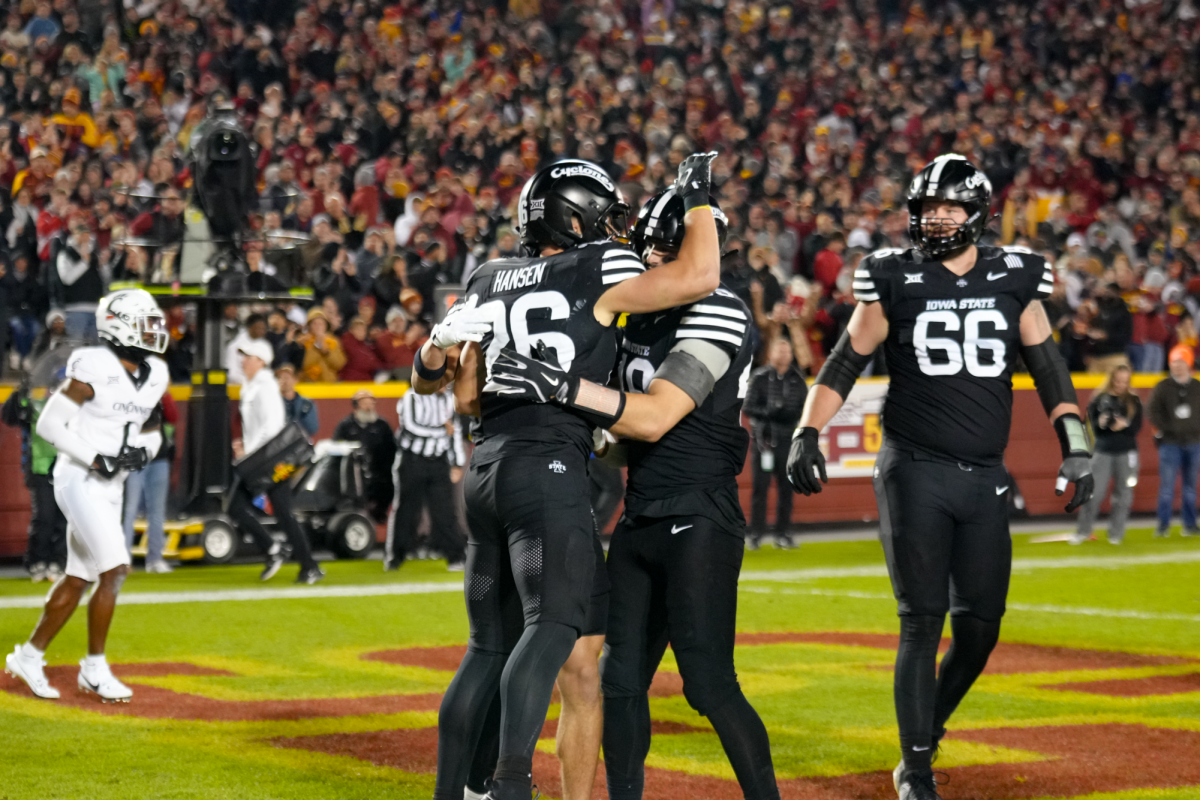COLUMN:U.S. foreign policy: Take a lesson from the past
September 17, 2002
The world looks to America today
By Rishab Chandra
As we all prayed for the victims of Sept. 11 just last week, let’s look back and analyze the role of the United States as a major initiator in the fight against terrorism. It is not hard to say that the efforts put in by the nation have, for a change, brought the whole world together and united all to take a stand against “terrorism.” It has support from Sri Lanka in Asia to Sydney in Australia. There have been immense changes in the nation’s foreign policy, which once again has affected the whole globe, proving the United States’ major role in world politics.
The major effect of this can be seen in the constant efforts of the Bush administration, which is trying to bring down tensions in South Asia. It is a known fact that there has been a hue and cry over terrorist activities in the region for longer than a decade. On the other hand, we have seen a rise in tensions in the Middle East. The question here is has this role of the United States as a mediator really worked? Or have all the nations got another excuse to throw allegations at one another: the issues being same but put in a different perspective. If we shed light on world politics, all the decisions that have been taken by various countries over the past year are in the back up of fighting terrorism. Needless to say, some have been against their counterparts who have existed before the “war on terrorism” came into existence”.
The question to be asked in the future is, are nations using this fight for terrorism and the support of the United States of America to continue the fight against their old rivals. Just because they are showing support during America’s quest to eradicate this plague from the world? It is a time when decisions made now would affect generations for several decades and would change the world forever. So every step taken should be weighed numerous times before it is implemented.
An imperialistic history
By Robert Baptiste
Americans have a bias with American international policy. Although our neighbors tell us that some of our political decisions may be a bad idea, George Dubya continues on the campaign to finish what Daddy started. Along with his decisions comes a consensus of the nation, because after all, these countries are big bullies who deserved it anyway. Right?
America’s flaws on their international policies are nothing new. It is through flaws in America’s own policies that the Hawaiian Kingdom was overthrown and annexed.
In January of 1893, United States Marines forcefully occupied Honolulu – which in America’s own law books is an act of war. With the Marines’ artillery directed at the bedroom of Queen Lili’uokalani, U.S. Minister John L. Stevens acted with American nationals to force the queen off her throne. Hawai’i had historically been a neutral nation, with no armed forces for battle. America violated its own restrictions on occupation and also violated the rights of freedom of an independent, neutral nation.
Our history does not stop there. During his presidency, Grover Cleveland and minister of foreign affairs James Blount ordered the American nationals to abandon their occupation of the islands. Disregarding his commands, the nationals continued their rule over the Hawaiian Islands, and the presidency changed hands to McKinley, who strongly desired Hawai’i as a Pacific post for American armed forces. Many attempts were made to restore Hawaiian sovereignty to rule in the islands. In two petitions collected in 1897, nearly 40,000 signatures were obtained in the islands to protest annexation of Hawai’i. These petitions stalled the annexation vote in the Senate. However, politicians anxious to control the islands called an emergency meeting of Congress and used a Joint Resolution of Congress to annex Hawai’i – imposing a domestic law on foreign soil.
In August of 1898, our kingdom was once and for all usurped into American rule. At Iolani Palace, the Hawaiian flag was removed from its post and was shredded to ribbons and handed out to the American citizens so that they could remember their greatness as the best nation in the world. For the next 100 years, my people would fight for the ability to speak our own language and for a plethora of native rights. Oppression of native peoples still exists in Hawai’i, the only homeland there is for us on this globe.
Taking a flash-forward to America’s handlings with other foreign countries, I try to think of what these other countries are thinking. We aren’t there; the only way we know what’s going on there is by what the American government tells us, forgetting that they only tell us what they want us to know.






